This post may contain affiliate links. Please see my disclosure policy for more details.
If you’ve decided to get yourself a Working Holiday visa in Australia, you’re probably full of excitement about exploring such a beautiful country!
However, the amount of things you need to organise can be overwhelming. I’ve lived in Australia as a foreign exchange student, a backpacker on a working holiday visa, and a permanent resident, so I know how much planning is involved.
To help your trip go smoothly, I’ve compiled all my knowledge and tips into this working holiday Australia guide. It includes the important stuff like visas, medical information and getting an Australian tax file number, as well as tips on organising road trips, finding cheap accommodation and making friends.
So, if you want your trip to go smoothly, keep reading to organise your epic Australian adventure! Alternatively, watch my YouTube video below.
Working Holiday Australia Visa Guide: Contents
To skip to a particular topic in this WHV guide, click on the links below.
- 1. Australia Working Holiday Visa Eligibility & Cost
- 2. Passport Validity
- 3. Travel Insurance & Flights
- 4. Medical Check Ups & Immunisations
- 5. Copying Important Documents
- 6. Cell/Mobile Phone
- 7. Australian Bank Account
- 8. Transferring Money Abroad
- 9. Join Backpacker Facebook Groups
- 10. Cheap Accommodation in Australia
- 11. Tax File Number
- 12. Medicare Card
- 13. Finding Work in Australia
- 14. Second Year Visa Regional Work
- 15. Organising Australian Road Trips
- 16. Buying a Car in Australia
- 17. Making Friends on Your Working Holiday
- 18. Backpacker Tax
- 19. Superannuation
1. Cost and How to Check if You’re Eligible for a Working Holiday Visa in Australia
The Australian Working Holiday visa currently costs $650 (from 1 July 2024 to 30 June 2025). You must meet the following criteria to qualify for a Working Holiday visa (subclass 417) in Australia:
- 1. You must be at least 18, but not yet 31 at the time of applying (or under 35 if you’re a citizen of Canada, Denmark, France, Republic of Ireland, Italy or UK);
- 2. You must hold a passport from an eligible country;
- 3. You must not have an dependent child accompanying you;
- 4. You must have enough money to support yourself (AUD $5,000);
- 5. You must not have previously entered Australia on a 417 or 462 visa;
- 6. You must meet character and health requirements;
- 7. You and your family must not have debts owing to the Australian government.
If you don’t hold a passport from any of the eligible countries listed in the 417 Working Holiday visa criteria, you may still qualify for the Work and Holiday visa (subclass 462). This is a similar visa for an additional 24 countries, but you may need to meet additional educational requirements and prove your level of English.
Learn more about the 417 and 462 visas in my blog post on the Australian Working Holiday visa criteria. The post includes the reasons you should do a working holiday and what the visas allow you to do!
2. Check Your Passport Validity
You should make sure your passport is valid for the entire length of your stay in Australia before you apply for your working holiday visa. If you get a new passport after you’ve applied for the visa, you’ll have to let the Australian government know.
If you’re eligible for a visa and your passport is valid, you can then apply for your working holiday Australia visa on the Australian Government – Department of Home Affairs website. Once your visa is granted, you can start properly preparing for your big trip!
Also, check passport validity requirements for any other countries you will be visiting, as many require your passport to be valid for at least six months in order to let you into their country.
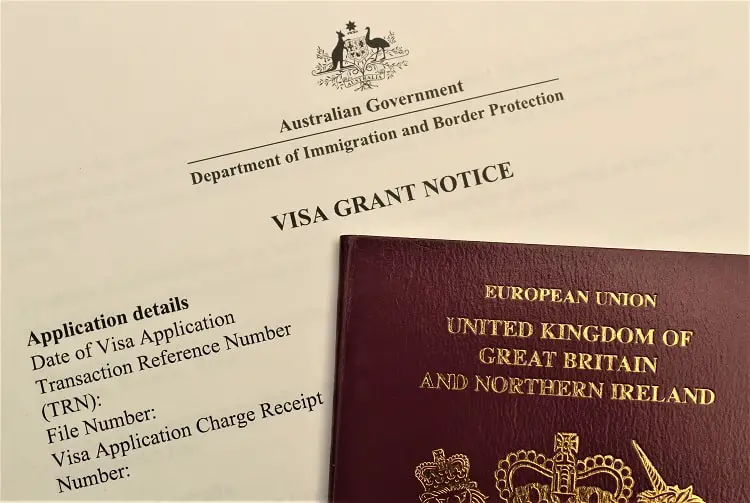
3. Buy Travel Insurance & Flights
Your next step is to buy travel insurance and book your flights. For travel insurance, start with comparison sites for whichever country you’re based in, so that you can compare different insurers.
Make sure that you’ll be covered for the entire length of your trip and for every country you will be visiting as well as for the activities you’ll be doing (scuba diving for example). Also look into whether gadgets are covered, as phones/tablets aren’t always included.
I tend to use Skyscanner to find the best deals on flights, as it compares so many airlines and travel agencies. It’s usually quite cheap to fly to Australia during their winter time (June/July), as long as it’s outside of school holidays.
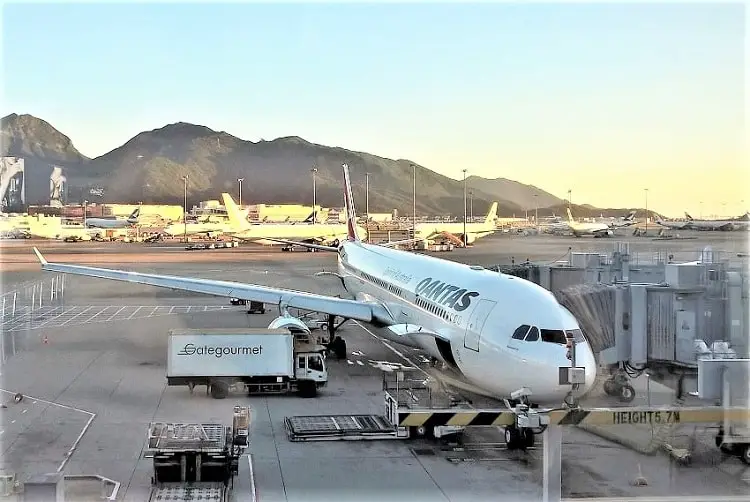
4. Routine Medical Check Ups and Vaccination
Make sure you have your regular check ups with your dentist and optician before you leave, as you may not be back home again for a long time!
Depending on which other countries you’ll be visiting on your trip, also check if you need immunisations (do this as soon as possible as some vaccinations require booster shots afterwards).
Stock up on any medication you need and check the cost in other countries if you’ll need to buy more there.
5. Make Copies of Important Documents
Scan important documents such as your passport, insurance policy and driving license (just in case), and keep a digital and hard copy.
If you’ve bought insurance to cover your electronic gadgets, you will probably need to send the insurer copies of your purchase receipts should you try to claim for any lost/stolen items. So read the documentation and make sure you find and copy relevant receipts too.
6. Unlock Your Cell/Mobile Phone & Choose an Australian Network
Do get your mobile phone unlocked before leaving home, as you’ll want to get an Australian sim card once you arrive. Carry out some research on mobile networks in Australia before you leave so you know which one to choose for your needs and don’t make a regrettable choice on arrival.
The three main mobile networks in Australia are:
- Telstra – the largest (but most expensive) network known for having the best coverage in remote areas.
- Optus – the second largest network, cheaper than Telstra but with less coverage.
- Vodafone – the third largest network, similar coverage to Optus and with frequent special deals.
If you’re planning on working in remote areas or going on road trips away from the main settlements, Telstra is your best option as it usually has great service in these kind of areas.
I chose Optus, but it was totally useless on much of my Perth to Adelaide road trip and throughout Tasmania. I’ve heard that Vodafone is just as bad.
My travel mate opted for Telstra and had much better service in remote areas. I’ve read this exact advice on many other blogs, so I would really take heed!
To learn more, there’s lots of information on Australian mobile phone networks on the whistleOut website.
7. Exchange Cash & Open a Bank Account in Australia
It’s useful to to exchange some cash into Australian dollars before you set off, just in case you have any problems using your cards abroad.
I would also do some research into Australian bank accounts in advance and choose the best account to suit your needs. You will need one if you plan on working in Australia, in order to receive your wages!
The big four banks in Australia are ANZ, Westpac, Commonwealth Bank & NAB.
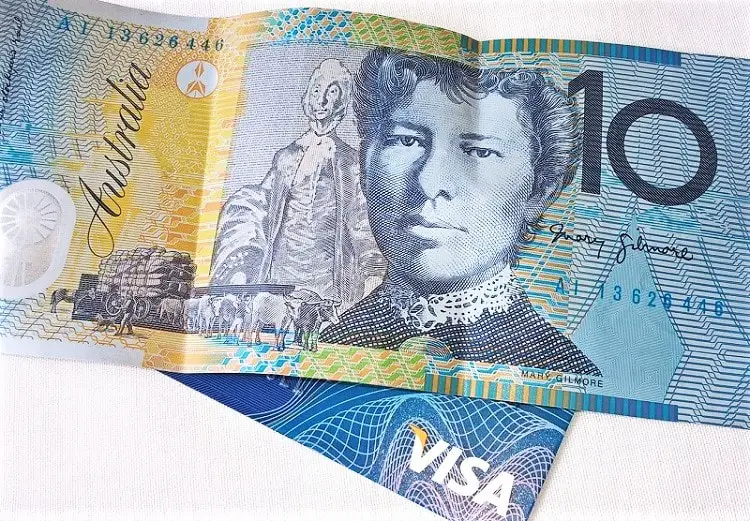
Make sure you check if the banks charge any fees if you don’t pay a certain amount of money in each month. Also check how many ATMs the bank has. Australia is about 20 years behind the UK in this respect and often charges you if you don’t withdraw from your own bank or an affiliated one!
I chose Citibank as it has no monthly fees on the account I opened, plus an attached savings account. It doesn’t have many ATMs, but I can use Westpac ATMs for free, and there are plenty of those around.
Make sure you open a bank account in Australia within six weeks of arriving, as you won’t be required to show as many pieces of identification (usually just your passport) to open the account. After this you will need to show a number of different forms of ID, each worth a different amount of points, in order to open your account.
Some banks let you open an account before you arrive in Australia, and just ask you to pop into a branch with your ID on arrival.
8. Accessing & Transferring Money to Australia
If you want to withdraw cash directly from your home bank account using ATMs in Australia when you first arrive, make sure you notify your bank you’ll be abroad first. They may suspect fraudulent behaviour and block access to your account otherwise.
Always make sure you have more than one way to access money while you’re travelling, just in case you lose your credit/debit card.
I once went to Brazil and both my friend and I had our cards cloned in an ATM. Her account got frozen because the fraudsters got her PIN wrong, my account got wiped out (the bank did reimburse the money eventually), and between three of us we just about had enough cash to get through our last few days!
If you’re planning on transferring savings from your home bank account to your new bank account in Australia, consider using a foreign currency exchange specialist such as Wise.
I’ve been using Wise (formerly TransferWise) since I moved to Australia, as it’s simple to use, totally transparent regarding fees and rates and much cheaper than using my bank.
To learn more, read my review of transferring foreign currency with Wise.
9. Join Backpacker Facebook Groups in Australia
Let’s get started on the fun stuff! Times have changed a lot since my very first trip to Australia, when you had to find travel mates and cars for sale on noticeboards in hostels – not Pinterest, but actual, physical pin boards!
It’s now really easy to find road trip buddies, rooms for rent or just like-minded travellers to hang out with on the weekend thanks to the world wide web!
One of the first things you’ll want to do when you start your working holiday in Australia (or even before you set off) is to join the relevant backpacker Facebook group for whichever city you’ll be staying in. You’ll find that virtually everyone in your hostel is already on them; they’re highly active groups.
Backpacker Footsteps have set up Facebook groups for lots of Australian cities and towns, as well as to help you find jobs and house shares.
10. Finding Cheap Accommodation in Australia
While most backpackers on a working holiday in Australia stay in hostels, there are plenty of other cheap accommodation options. Make sure you read my guide on free and cheap accommodation in Australia to save yourself some money!
House Sitting: Free
House sitting is when you live in a local’s property for free while they’re on holiday in return for looking after their pets and home. It’s my favourite way to score free travel accommodation whilst living in luxury!
The only cost house sitters pay is an annual membership to whichever house-sitting site you choose to use (usually around the cost of two or three nights in a hostel).
I house sat in Perth, Adelaide and Melbourne during my road trip and decided to house sit full time in Sydney afterwards, when I settled there!
I still house sit now and have saved over $70k in rent over the last few years!
To find house sitting jobs, you’ll need to join a reputable house-sitting website. Here are my top recommendations.
- For worldwide house sitting, Trusted Housesitters is a fantastic option. They cover over 130 countries and have really unique perks available, such as house sit cancellation compensation. Click here to get 20% off a Trusted Housesitters annual membership.
- For house sitting in Australia only, I thoroughly recommend joining Aussie House Sitters. I got house sits straight away through their site during my Australian road trip, and the site is easy to use.
- To learn more about house sitting, read through my in-depth guide to what house sitting is or my post on how to become a house sitter.
- To learn exactly how I became such a successful house sitter, click here to take my FREE house-sitting email course. You’ll also receive an instructions template that homeowners can fill in with your duties.
Hostels: $35-$65 per night
You’ll likely want to book into a hostel for your first week or so in Australia, as they’re a great place to make friends and meet other travellers. To make your trip less stressful I’d advise booking your first week before you set off and planning how you’ll get there from the airport.
Before choosing a hostel, make sure you read through my list of best hostels in Australia!
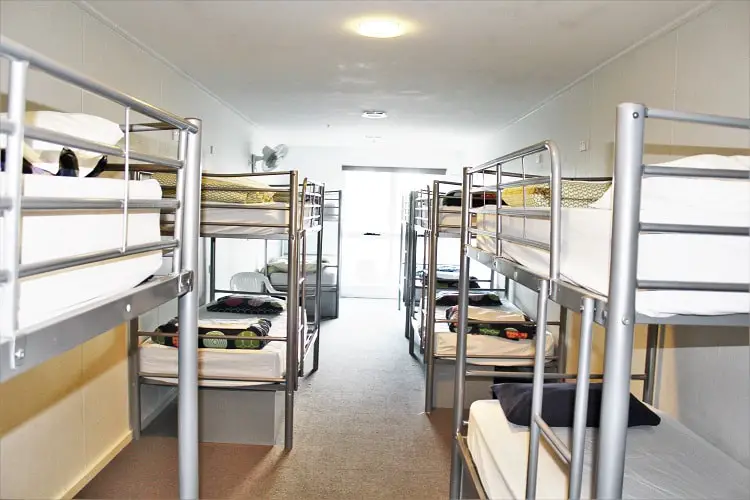
House/Flat Shares: $200-$400 per week
If you’re going to be living and working in an Australian city for a while, you might want to think about finding a flat or house share to make you feel more settled. It can actually cost the same or less than a hostel dorm bed.
The place to find casual short-term rentals is either Gumtree, the Facebook backpacker groups I listed above or flatmates.com.
Accommodation is so in demand in Australian cities that people often rent their rooms out when they go on holiday. So even if you only want a few weeks you could still find something!
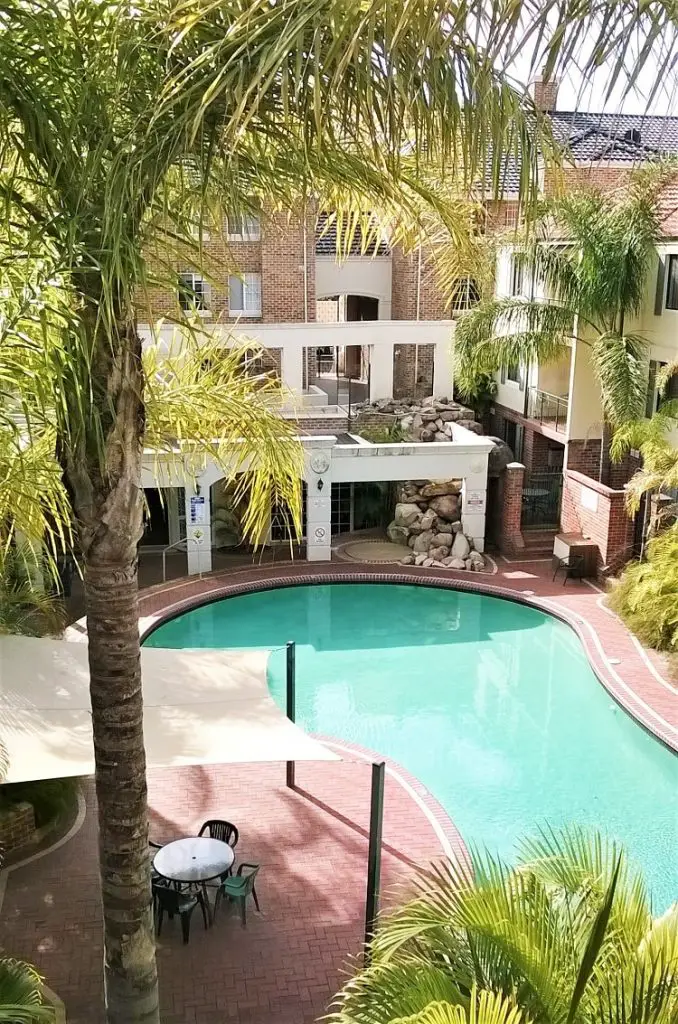
Airbnb
I was very surprised to find that sharing a double room on Airbnb (where the owner is also living there) in Melbourne worked out the same price per person as staying in a hostel dorm. This is a great option for couples.
11. Get a Tax File Number
A tax file number in Australia is the equivalent of your National Insurance number in the UK. You’ll need one if you want to work. You can apply online through the Australian Taxation Office (ATO) – you just need a valid passport and an address for them to send it to. The number will be sent to you within 28 days.
12. Get a Medicare Card
If you are a visitor from a country that has a Reciprocal Health Care Agreement with Medicare, the Australian health care system, some of the medical expenses you incur in Australia may be covered.
If you are eligible, you can fill out a Medicare application form and take it to a Medicare service centre in Australia to get a Medicare card.
Read through my article on how Medicare works to learn more.
13. Finding Working Holiday Jobs in Australia
The cost of living in Australia is fairly high compared to many other countries, so most backpackers will be eager to find work to top up their travel funds.
A lot of backpackers find work in the service industry (bars, restaurants, cafes) and construction is a pretty popular industry too, as there’s a lot of development in Australia and it’s well paid.
Budget your working holiday in Australia using my guide on the cost of backpacking Australia.
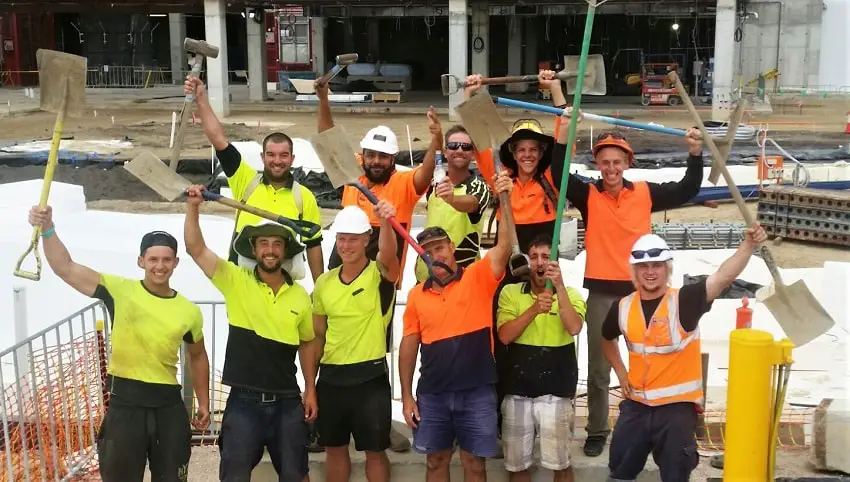
Note that you’ll need what’s known as a Responsible Service of Alcohol (RSA) certificate to serve alcohol in Australia; despite being known as a laidback country it is actually the nanny state of all nanny states, with a lot of red tape!
A couple of popular websites for backpacker work in Australia are Backpacker Jobs Australia and Backpacker Job Board, and you can also check out Gumtree, Facebook backpacker groups and local newspapers.
A lot of backpackers find work in Australia just by asking other backpackers or hostel owners. People often know someone who knows someone! You can also do cleaning and reception work in hostels.
To read a first-hand experience, check out my Australian working holiday interview with a German backpacker. My travel mate Michi worked in construction on his trip, and completed his farm work for his second-year visa.
14. Finding Regional Work for Your Second Year Visa in Australia
I know that many of you will want to complete your 88 days of regional work in order to get your second or third working holiday visa in Australia. Just make sure that you start looking for work well ahead of time, so that you’re not in a panic at the last minute.
Here’s a link to the official specified work for the second WHV on the government website if you want to learn more.
There’s been a well-publicised problem in Australia with backpackers being exploited by farm owners (underpaid, harassed etc) and putting up with it as they are so desperate for the work to be signed off in time.
Starting your farm work early means you’ll have time to leave and find another job if required (hopefully you won’t have to though – plenty of people have a great experience).
My travel mate, Michi (in the picture below), left his farm work until the last minute and had an awful time with a bullying boss on a fruit farm in Tasmania.
Thankfully he found somewhere else in time, but it meant flying up to Queensland to work on a cattle farm! He had a brilliant time there though, and just managed to get his 88 days in before the cut-off time.
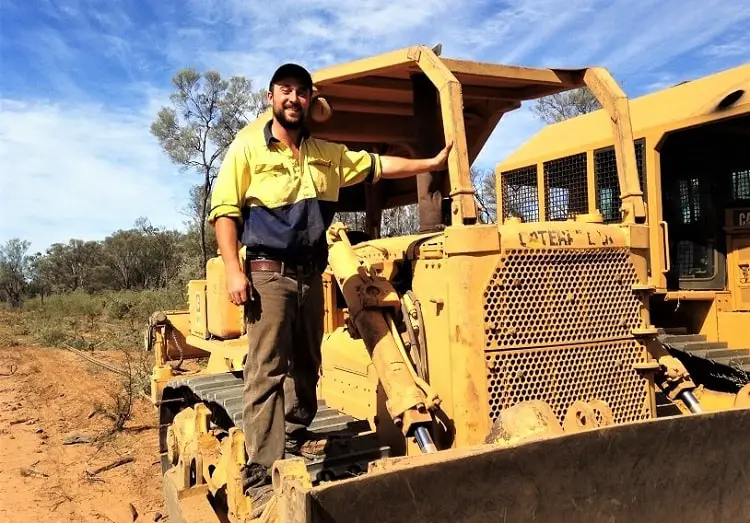
15. Organise Australian Road Trips
If you’ve made it to the other side of the world, make sure you explore the country! You’re there to work and travel in Australia after all! Just remember how enormous Australia is and how long it takes to get from one city to another.
There are heaps of ways to travel Australia: organised tour buses, public coaches, trains, flights, hiring or buying a car or campervan, or getting a ride in another backpacker’s car. Whatever your budget you should find something suitable.
To start planning road trips, take a look at my Australian drive itineraries, which includes the popular east coast road trip from Sydney to Brisbane. You can also browse my Australian destinations page to explore by state.
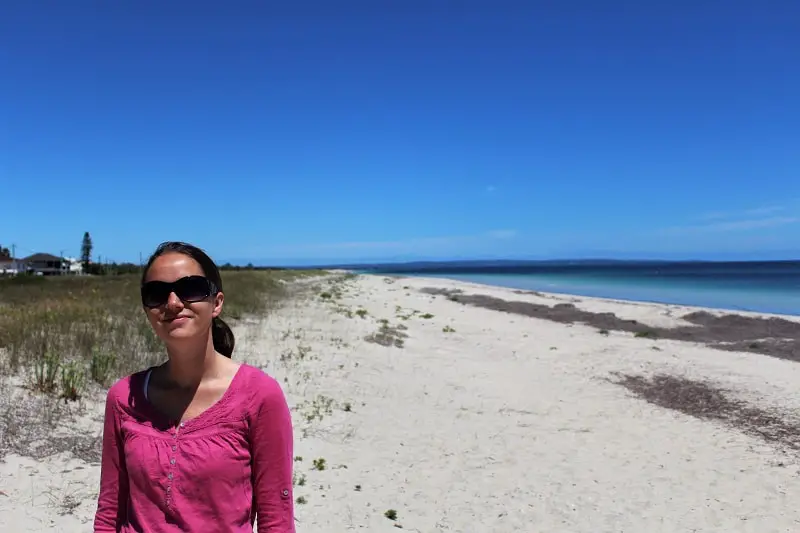
16. Buying a Car on Your Working Holiday in Australia
Many backpackers decide to buy a cheap car or campervan on their working holiday in Australia, as it allows the ultimate freedom on road trips to explore wherever you like for as long as you like. It also means you can stay at campsites between cities and save a lot of money on accommodation.
You can buy cars complete with camping gear from other backpackers who are leaving the country after their working holiday ends (usually via the backpacker Facebook groups). Alternatively, consider finding a second-hand car on Gumtree, in local newspapers or from a car dealer.
Just be careful buying a vehicle from other backpackers, as these are often extremely old and not always looked after well. It’s cheaper to buy a car in good condition and then get cheap camping gear separately than waste thousands on replacing car parts.
It’s a good idea to get a mechanic to check over any cars you are interested in buying, and always ask the owner to show you the latest service reports.
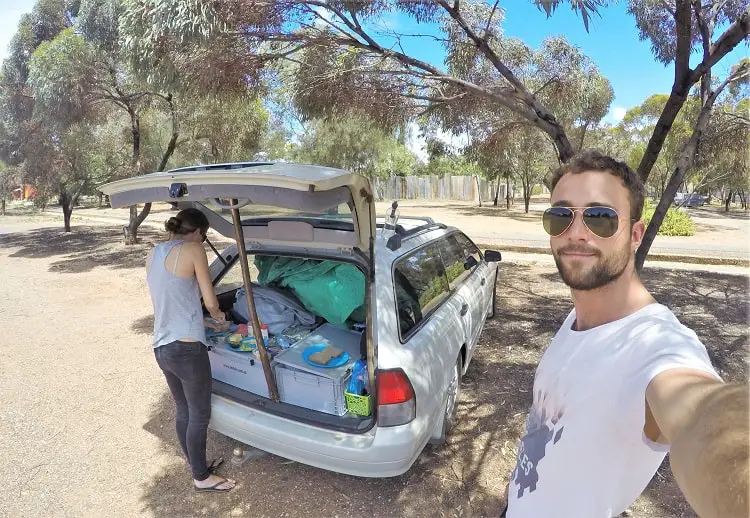
Also be aware that vehicles in Australia are registered to the state the owner lives in, and if you buy one in a different state to where it’s registered (for example, if a backpacker has driven it across the country) you may have to have it officially examined and get the number plates changed to ones from the new state. Do your research as there are different rules in each state.
17. Making Friends on Your Working Holiday in Australia
If you’re travelling solo for the first time, you might be worried about how you’ll meet people and make friends. I promise you it’s easy, and you won’t be lonely! Never give up an opportunity to travel because you haven’t got anyone to go with.
Most travellers set off by themselves and are keen to meet other people. If you stay in hostels it’s hard not to get chatting to the people in your dorm or in the kitchen, even if you’re not someone who tends to approach people.
If your room mates don’t speak to you straight away they’re probably feeling just as shy as you, or they’re nervous about how good their English is. Say “hi and ask their name, and they’ll probably be really pleased to talk to you.
If you need more inspiration to take the plunge and travel solo, read through my top reasons to travel alone!
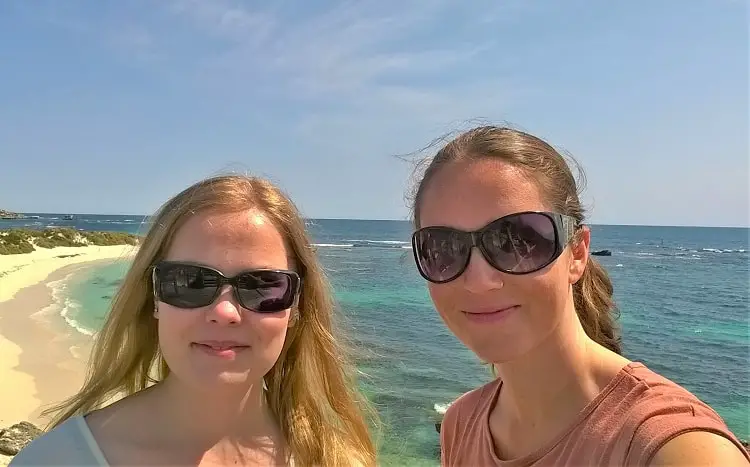
If you’re looking for travel buddies for road trips, or even to get out and explore at weekends, backpacker Facebook groups are great, or people you meet in person at your hostel.
You can also use the website Meetup.com and join groups that run outings on whatever your interests are. I’ve made virtually all my friends in Sydney that way, through walking groups and female social groups.
18. Australian Backpacker Tax Rates & Claiming a Refund
It’s worth reading up about backpacker tax for working holiday makers on the ATO website. You need to make sure you lodge a tax return if you’ve been working in Australia.
Note that the Australian tax year begins on 1st July, so make sure you lodge a tax return at the end of the tax year (or earlier if you’re heading home), as you may be entitled to a refund.
19. Superannuation in Australia
Superannuation, or ‘super’ as the Aussies call it, means your pension or retirement fund. This may not be something on your mind if you’re in your twenties and gallivanting around the world, but your Australian employer will be obliged by law to pay a certain amount into a super fund for you.
You’ll be pleased to know that you can claim your superannuation back at the end of your working holiday in Australia, but less pleased to know that as of 1st July 2017 the full amount will be taxed at 65%!
Here’s another link to the ATO explaining the deal with your departing Australia superannuation payment (DASP).
That’s it for my working holiday Australia guide! Best of luck on your year in Oz, and if you have any other tips feel free to leave them in the comments!
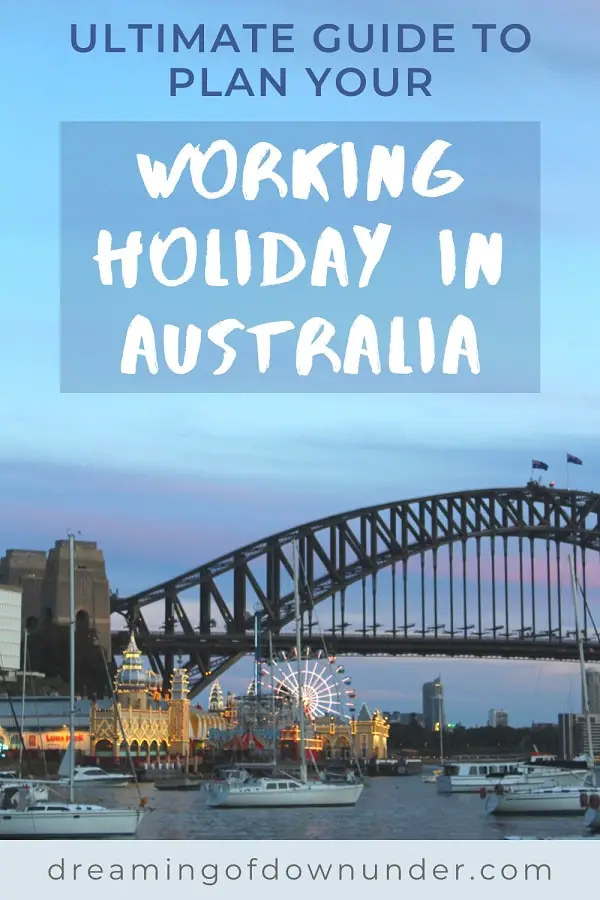
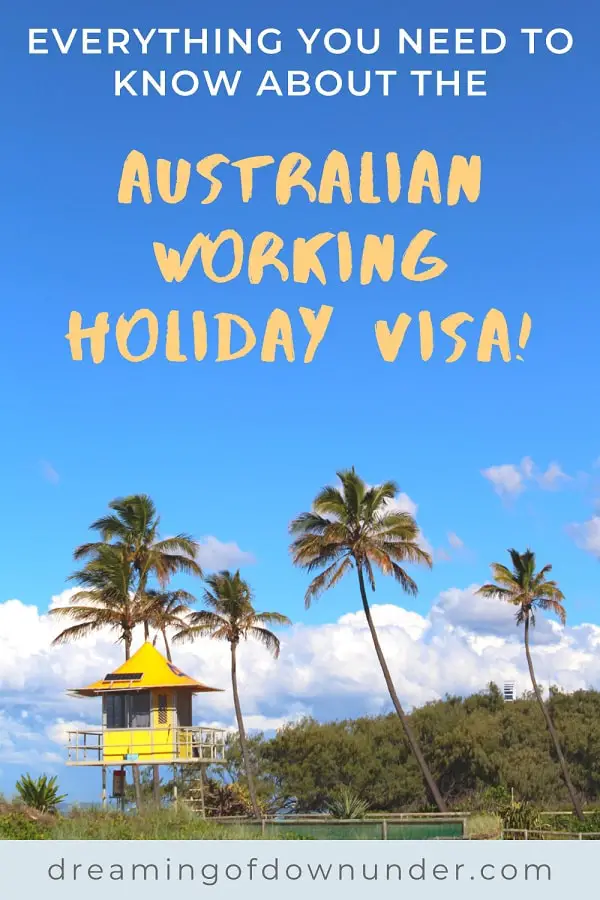
Lisa Bull, founder of Dreaming of Down Under, has been living in Australia as a British expat since 2015. After travelling to every state and territory in Australia and living in Perth, Brisbane and Sydney, Lisa knows from first-hand experience the best destinations to visit in Australia and the best budget travel tips. Her guides on this blog have been read by over 700k readers and helped thousands of people achieve their dream of living in or travelling Australia.
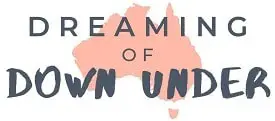
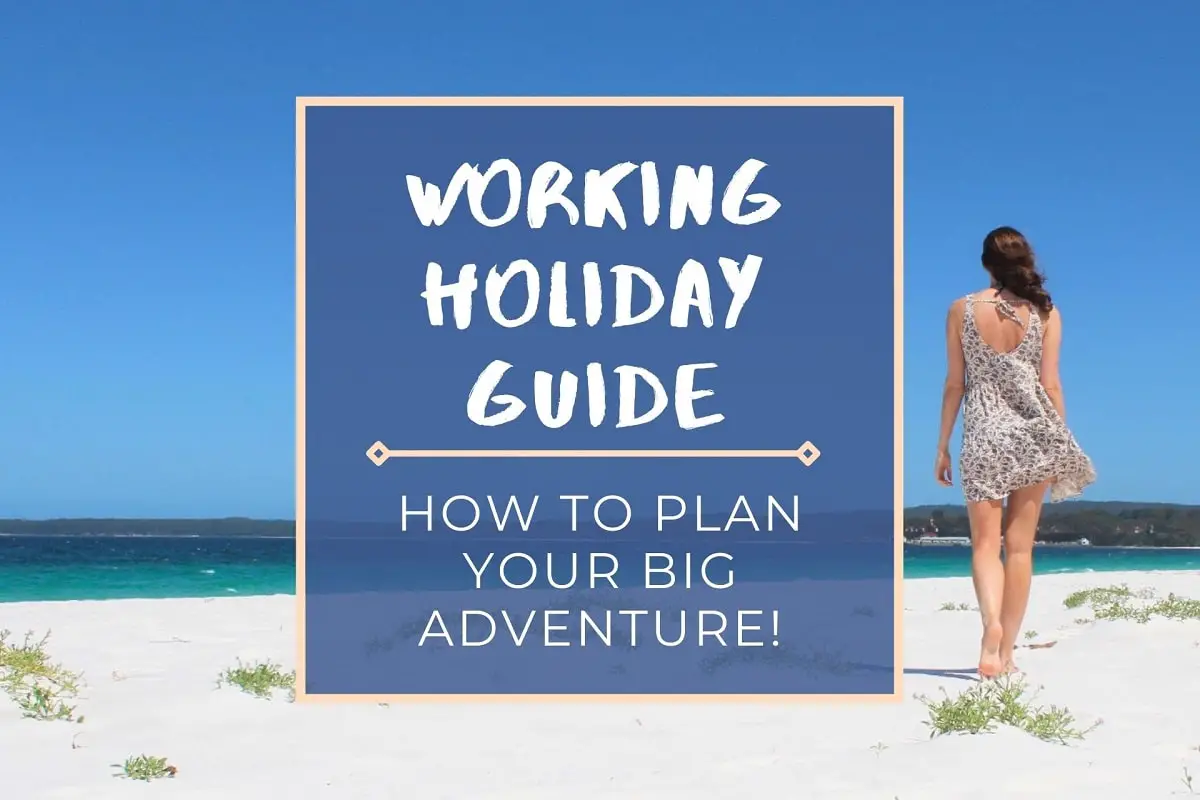
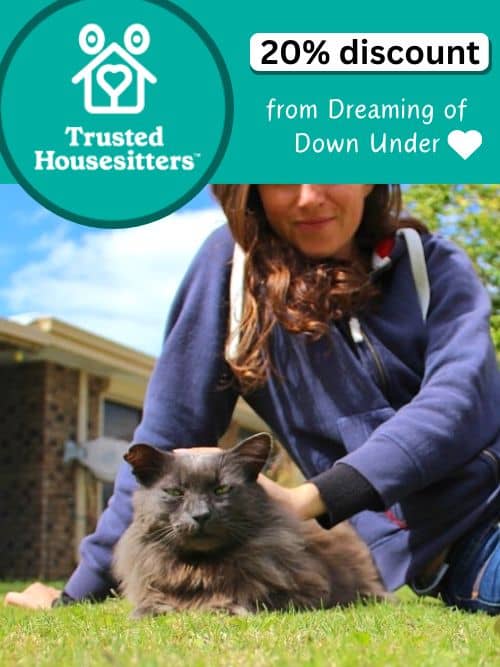
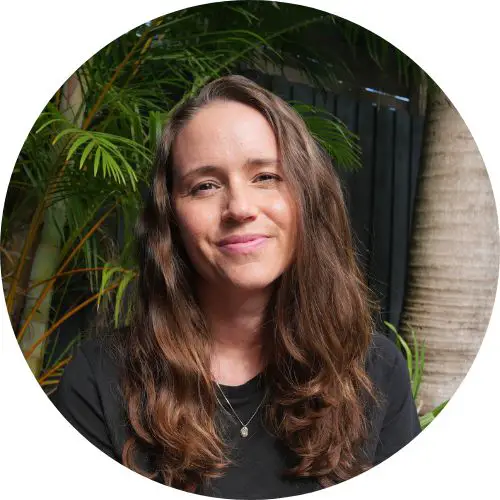
I love this article, so clear, so easy reading but with details, I really love it. Thank you so much
Fascinating and informative article. I remember, when I decided to travel and work in Australia, I read so many different information online that I can’t even say how many time I spent on finding out information. But it was last year, and I spend four cool months in Sydney and Melbourne. I was working, but I also had plenty of time to travel and discover exciting places. The only difficulty I had was finding a good job. There were plenty of sites with propositions, but it was hard to use them, and many things were unclear. But this time everything should be easier.